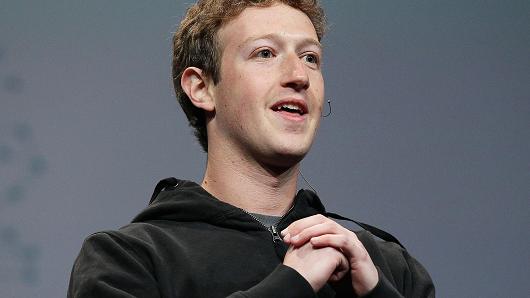The company's co-founder and chief Mark Zuckerberg revealed the ongoing tests during
a question and answer session on Tuesday.
"People have asked about the 'dislike' button for many
years, and probably hundreds of people have asked about this, and today is a
special day because today is the day that I actually get to say we are working
on it, and are very close to shipping a test of it," he said.
The "dislike" button has been a subject of much discussion over the
years.

Getty Images
Facebook founder and CEO Mark Zuckerberg in 2010
The CEO said the company has been working on the
feature—which would allow users to express emotions other than
"like"—for some time because "we don't want to turn Facebook
into a forum where people are voting up or down on people's posts."
"That doesn't seem like the kind of community that we
want to create: You don't want to go through the process of sharing some moment
that was important to you in your day and have someone 'downvote' it," he
said, using the lingo of popular online forum Reddit.
Instead, Zuckerberg said, the new feature will allow people
to "express empathy" with their Facebook friends, explaining what
many users of the social media platform already knew: "If you are sharing
something that is sad...then it may not feel comfortable to 'like' that
post."
Read More CNBC 25: Mark Zuckerberg
He added the dislike interaction is "surprisingly
complicated" to create, but Facebook thinks it will soon begin testing
before a wider roll out.
Questions came in via Facebook posts, comments on a
live-stream of the event, and an audience in Menlo Park, California.
The CEO also discussed his company's work with its Oculus
virtual reality platform, saying that the experience is "not only going to
be things that are in the world, but you'll be able to experience things that
aren't even possible to experience in the world"—such as a zero-gravity
environment.
Zuckerberg also weighed in on the question of artificial
intelligence—a subject which many prominent technologists have warned could one
day pose a threat to humanity. He said he was less fearful of the consequences,
especially given how many beneficial applications of AI are currently in
development (such as autonomous cars).
"I think that it's a little dangerous to be too
negative about the prospect of something long term when all signs point to that
over the next 10, 20, 30 years—whatever it is—we're going to unlock all this
value and help people's lives so much by developing this technology," he
said. "So I'm an optimist."
Source: CNBC